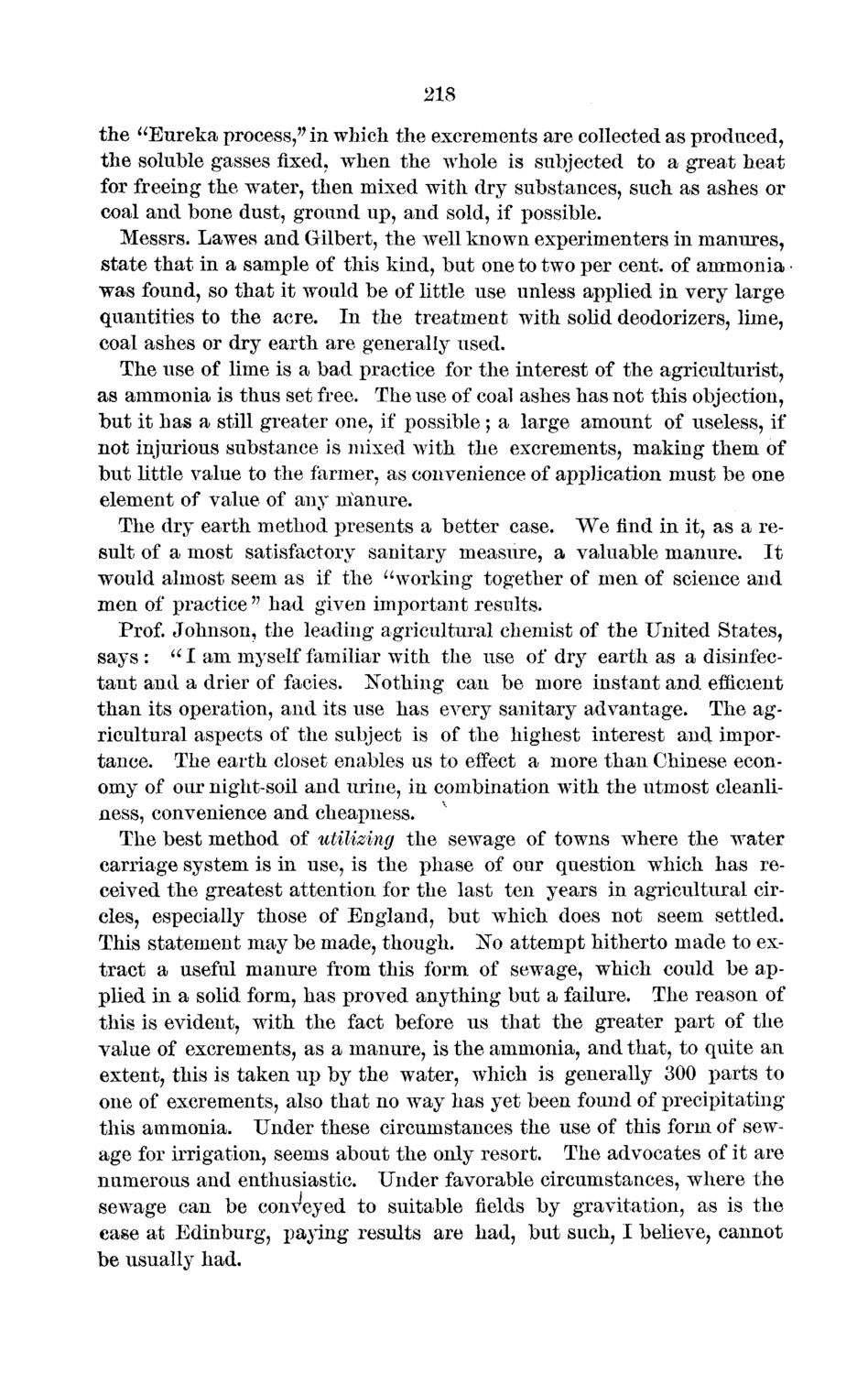| |
| |
Caption: Board of Trustees Minutes - 1872
This is a reduced-resolution page image for fast online browsing.

EXTRACTED TEXT FROM PAGE:
218 the "Eureka process,'' in which the excrements are collected as produced, the soluble gasses fixed, when the whole is subjected to a great heat for freeing the wrater, then mixed with dry substances, such as ashes or coal and bone dust, ground up, and sold, if possible. Messrs. Lawes and Gilbert, the wrell known experimenters in manures, state that in a sample of this kind, but one to two per cent, of ammonia • was found, so that it would be of little use unless applied in very large quantities to the acre. In the treatment with solid deodorizers, lime, coal ashes or dry earth are generally used. The use of lime is a bad practice for the interest of the agriculturist, as ammonia is thus set free. The use of coal ashes has not this objection, but it has a still greater one, if possible ; a large amount of useless, if not injurious substance is mixed with the excrements, making them of but little value to the farmer, as convenience of application must be one element of value of any manure. The dry earth method presents a better case. We find in it, as a result of a most satisfactory sanitary measure, a valuable manure. I t would almost seem as if the uworking together of men of science and men of practice v had given important results. Prof. Johnson, the leading agricultural chemist of the United States, says : " I am myself familiar wTith the use of dry earth as a disinfectant and a drier of facies. Nothing can be more instant and efficient than its operation, and its use has every sanitary advantage. The agricultural aspects of the subject is of the highest interest and. importance. The earth closet enables us to effect a more than Chinese economy of our night-soil and urine, in combination with the utmost cleanliness, convenience and cheapness. The best method of utilizing the sewage of towns where the water carriage system is in use, is the phase of our question which has received the greatest attention for the last ten years in agricultural circles, especially those of England, but which does not seem settled. This statement may be made, though. No attempt hitherto made to extract a useful manure from this form of sewage, which could be applied in a solid form, has proved anything but a failure. The reason of this is evident, with the fact before us that the greater part of the value of excrements, as a manure, is the ammonia, and that, to quite an extent, this is taken up by the water, which is generally 300 parts to one of excrements, also that no way has yet been found of precipitating this ammonia. Under these circumstances the use of this form of sewage for irrigation, seems about the only resort. The advocates of it are numerous and enthusiastic. Under favorable circumstances, where the sewage can be conveyed to suitable fields by gravitation, as is the case at Edinburg, paying results are had, but such, I believe, cannot be usually had.
| |